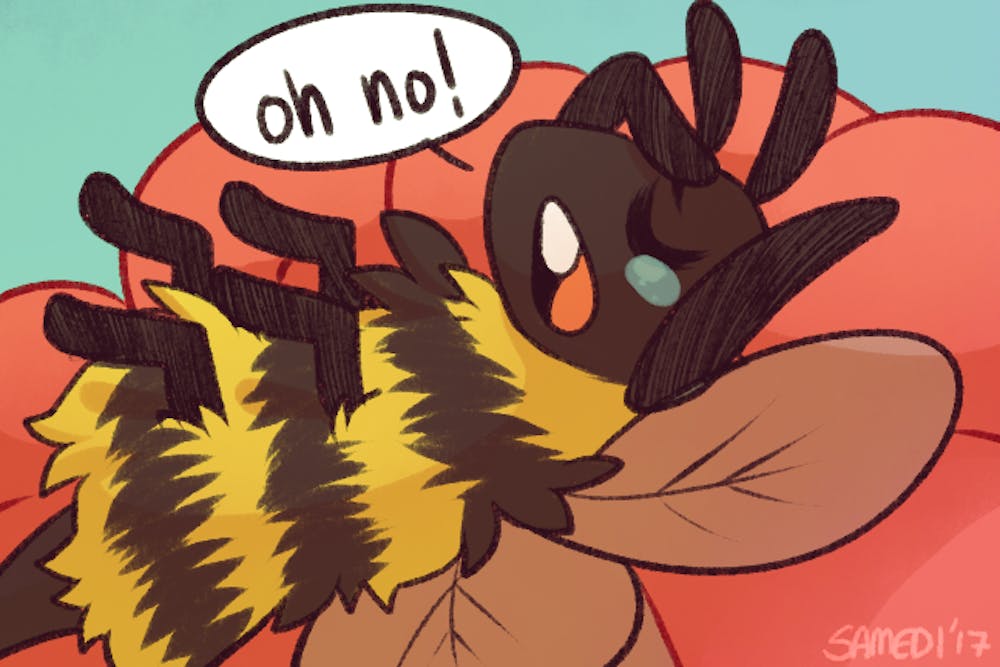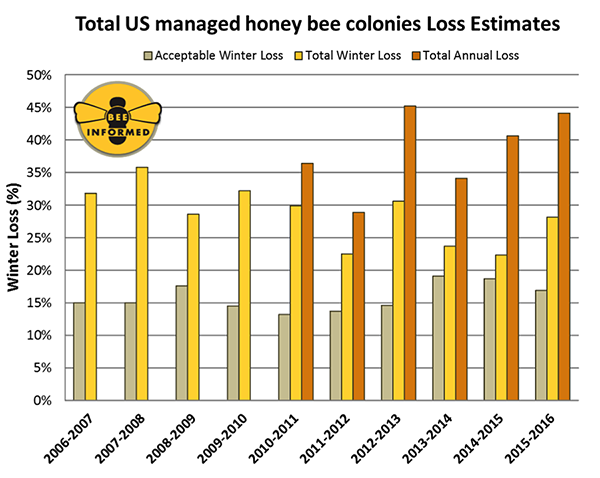Honey bee populations have recently witnessed a sharp decline, putting American agriculture in danger and catching the interest of ASU researchers.
Researchers at the ASU School of Life Sciences were awarded a three-year grant containing about $930,000 by the U.S. Department of Agriculture (USDA) to study the affect of the fungicide Pristine on honey bee populations in America.
Jacob Campbell, a Ph.D. student at ASU, was a part of the original team that developed the proposal for the USDA grant.
"The grant research stems off a project that began over three summers ago," Campbell said.
The original project was done in collaboration with the Carl Hayden Bee Research Center in Tucson, where researchers looked at the effects of fungicides used to protect crops from fungal infections on honey bee colony health.
The proposal consisted of results from various tests the team ran and a hypothesis that linked the damage being done to honey bee colonies to Pristine, Campbell said.
An issue known as colony collapse disorder, where an entire bee colony will suddenly disappear, has been occurring among honey bee populations nationwide. Colony collapse disorder can be caused by several different factors ranging from viruses to parasites, but the ASU research group suspects that it is due to the new fungicide that was introduced to the market ten to twelve years ago, Campbell said.
The team has collected data on the mitochondrial activity and the metabolic rate of bee colonies exposed to the fungicide, Campbell said.
“They’ve been doing that at the colony level for awhile, but now they want to look at it in the individual bee level, in hopes of figuring out what is going on,” Campbell said.
Brian Smith, a professor at the School of Life Sciences, said the USDA is interested in establishing what factors are out there that are really affecting the health of pollinators like honey bees.
The research team wants to use as many behavioral, neurological and physiological measures as possible to create a comprehensive picture of how the central nervous system and overall health of the honey bee is affected by fungicides, Smith said.
The grant will be used to cover the costs of equipment and chemicals, but the most important resource the grant will provide is the ability to hire people, Smith said.
“I can buy all the equipment, all the chemicals in the world, and if I don’t have good people in my lab I can’t do anything with it,” Smith said.
The research team will be constructed of graduate students and postdoctoral researchers, he said. All the information gathered by the team will be available to the public in the form of open access journals and scientific publications.
Honey bees are vital for the health of not only fruit life, but also of nut crops and various other agricultural industries. If honey bees disappeared, the U.S. agricultural industry would collapse on itself and the prices of many products would skyrocket, Smith said.
Jon Harrison, a professor in the School of Life Sciences, is one of the principal investigators on the project.
He said fungicides are important to maintain healthy agriculture in the country, but it's imperative to find a way to not harm pollinators in the process.
“We’re the ones undoubtedly leading to their decline,” Harrison said. “We have to be, as a people, responsible for that.”
Reach the reporter at gabbyt98@gmail.com or follow @GabbyTortorich on Twitter.
Like The State Press on Facebook and follow @statepress on Twitter.





